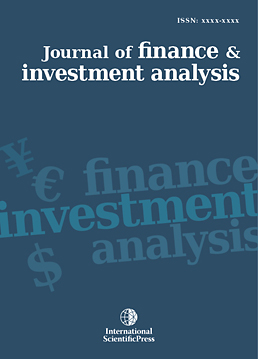Journal of Finance and Investment Analysis
The “Perpetually” Efficient Stock Market Nonsense: The Gaslighting Effects
-
 [ Download ]
[ Download ]
- Times downloaded: 8555
Abstract
One of the conventional and commonly accepted assumption in the financial world is the Efficient Market Hypothesis (Fama, 1970). However, the intellectual dominance of the efficient-market revolution has more been challenged by economists who stress psychological and behavioral elements of stock-price determination and by econometricians who argue that stock returns are, to a considerable extent, predictable (Malkiel, 2003). “Boom-bust” patterns are the empirical evidence of the efficient market nonsense. We suggest a theoretical linkage between the EMH and the Reflexivity Theory focusing mainly on the psychological profile. We suppose that, during stages of market exuberance/panic, the market pricing produces “gaslighting effects” and that mean-reverting behavior (i.e., contrarianism) is the result of participants’ awareness of psychological deviation from reality. We suspect that investors “benchmarking” plays a primary role on this latter aspect. Outside bubbles episodes, the market pricing is generally efficient and reflects the fundamental value evolution, without producing gaslighting effects.
JEL classification numbers: G10, G11, G14.
Keywords: Efficient Market Hypothesis (EMH), Reflexivity Theory, Gaslighting Effects.
